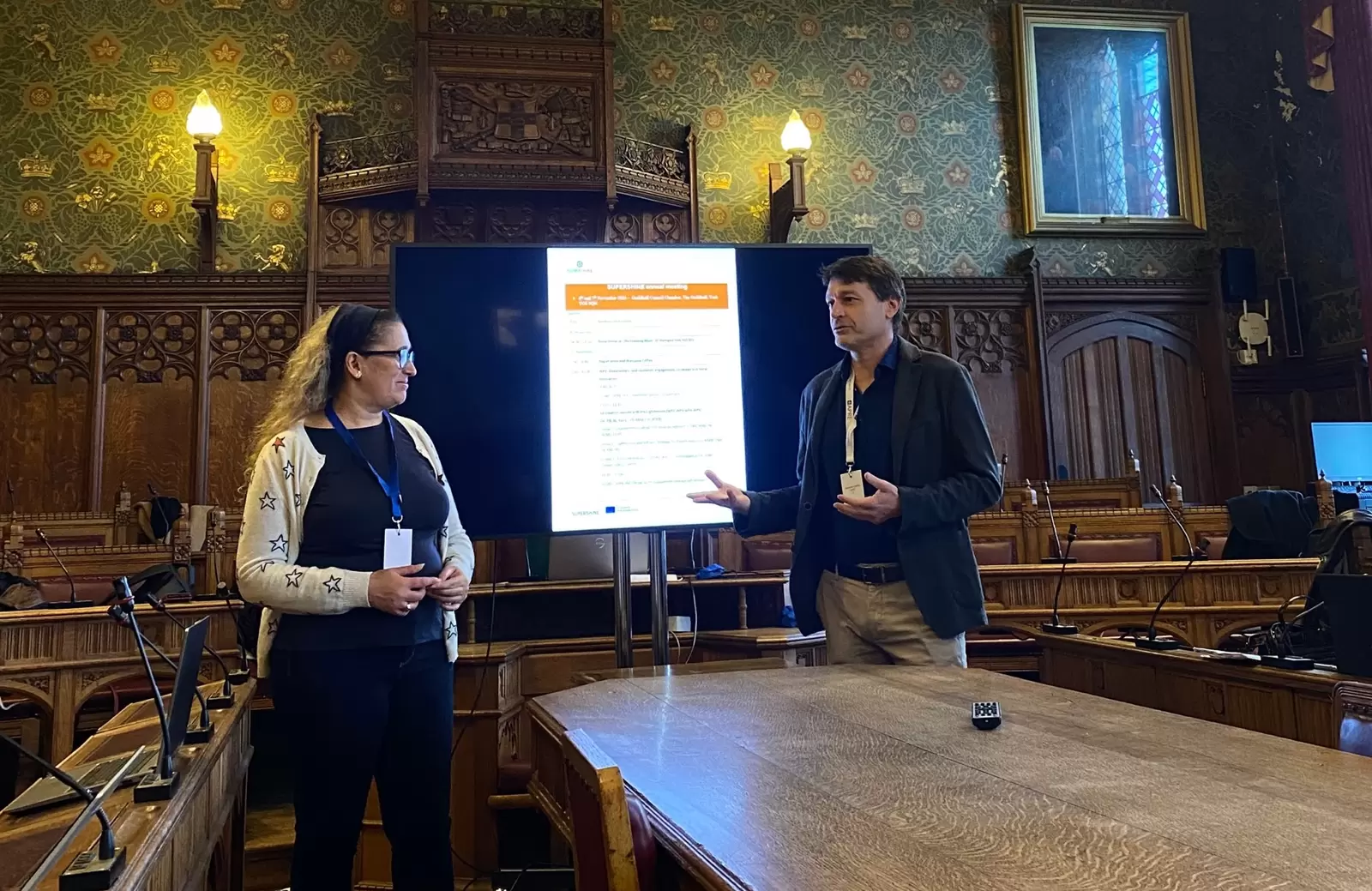A Closer Look into SUPER-i & SUPERSHINE : Get to know the impact better

SUPER-i and SUPERSHINE projects charted new frontiers in sustainable urban development. From co-creation workshops to policy roundtables in Riga, Trieste, and Herning, these initiatives are forging a future where vibrant, sustainable communities thrive.
In early November, both projects held their annual meetings in York (UK). This year they broke away from traditional formats with a series of co-creation activities for the whole consortium.
The co-creation session kicked off with a workshop led by Eva Martinez Cruz from ICONS. Partners validated the key performance indicators (KPIs) developed by ICONS, focusing on stakeholders' and residents' engagement, co-design, and social innovation.
Eva Martinez Cruz captures the essence of the workshop: "The various workshops enabled delegates to openly discuss the future plans and objectives of the lighthouse cities, and to set out engagement strategies accordingly."
The co-creation session with the three SUPERSHINE lighthouse districts followed. The districts of Riga, Trieste, and Herning took turns to discuss themes such as awareness of energy renewal benefits, community engagement, and social objectives.
In Riga, the focus is on heightening energy awareness through initiatives like energy-efficient retrofits in public buildings, alongside engaging the broader community through events like Community Days. Furthermore, another pivotal element is to develop bottom-up business models granting financial possibilities. Trieste's strategy involves co-designing public spaces in line with the "beautiful" principle of the New European Bauhaus, emphasising community involvement in decision-making processes. Meanwhile, Herning prioritises ongoing renovation efforts, targeting social objectives like behavioural changes, energy savings, and biodiversity protection, with a commitment to fostering sustainable living practices within the community.
Together, these initiatives form a comprehensive approach to urban development, aiming at creating vibrant, sustainable, and community-centric environments in each respective city.
The SUPER-i co-creation session covered several key aspects of the project's progress. The SUPERSHINE Project Coordinator and SUPER-i WP1 Leader, Riccardo Coletta from APRE, initiated discussions on stakeholders’ engagement and policy co-creation, focusing on the national policy framework. The aim included proposing revisions to the legal framework, validating template documents, and extending pilot project results to a broader social housing stock.
Focusing on the technical KPIs, Tom Staw of Element Energy Ltd initiated the second phase of the co-creation session discussion on technical key performance indicators (KPIs) and initial results for SUPER-i pilot countries. The focus was on understanding energy demand, associated costs, and emissions, with KPIs including building thermal performance and fuel cost and carbon emissions. Following on the technical KPIs, Noelia Perez of CIRCE proposed the environmental KPIs grouped into categories such as energy, water, atmospheric, waste management, indoor quality, materials, and land use.
The Project Coordinator of SUPER-i, Paola Zerilli of University of York, discussed the economic KPIs, including financial and energy poverty ones.The financial KPIs covered net present value, return on investment, period, energy bills savings among others, while the energy poverty KPIs measured aspects like energy expenditure, arrears on utility bills, as well as employment rates. Public-private partnership contracts were also discussed, highlighting the significance of PPP contracts where social housing companies benefit from the increased monetary value of the building, a substantial part of the financial gains from energy efficiency renovations. Paola Zerilli concluded the progress in the financial analysis aspect of the project by briefly explaining the financial methodology used to select the most appropriate PPP contracts with a focus on guaranteed savings, shared savings, energy supply contracts, and direct credit lines for each pilot country, concluding that shared savings and guaranteed savings contracts are identified as the most suitable.
In Italy, the Trieste strategy focuses on decreasing energy poverty and co-designing public spaces in line with the "beautiful" principle of the New European Bauhaus, highlighting community involvement in decision-making processes. In Denmark, Boligselskabernes Landsforening and European Green Cities give priority to ongoing renovation efforts, targeting social objectives like behavioural changes, improved comfort level and biodiversity protection. In Slovenia, the emphasis is on raising energy awareness through initiatives such as energy-efficient retrofits in public buildings and developing investment models that provide innovative financial solutions to cover the cost of implementing the SUPER-i proposed energy-efficient renovations.



